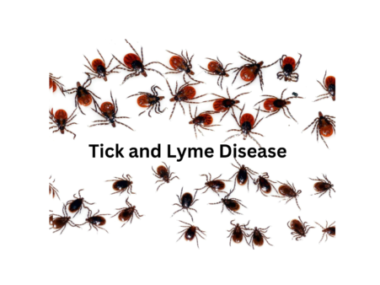Many individuals that are looking at taking public health course(s) are most times confused about the particular course to go for. This is most time due to the numerous courses available under public health and also being ignorant about what each of these courses entails. If you are facing this challenge then you should worry no more as I will walk you through the different best public health courses to study. This will help be able to make that decision about the particular course(s) you wish to study.
The realm of public health assumes a pivotal function in improving the well-being of communities and populations worldwide. With advancements in technology and the availability of online learning platforms, aspiring public health professionals possess the chance to gain knowledge and expertise. through online courses. If you’re a healthcare professional aiming to broaden your horizons, expertise or a student interested in pursuing a career in public health, these courses will provide you with valuable insights and a strong foundation in this important field.
So let’s begin
2023 Best Public Health Courses to Study
Here are the best public health courses to study in 2023 in no particular order.
1. Environmental Health
Environmental health is a crucial aspect of public health that focuses on understanding and managing the interactions between human health and the environment. From air and water quality to hazardous substances and occupational hazards, environmental factors significantly impact our well-being.
The “Environmental Health Fundamentals” course is designed to provide students and professionals with a solid foundation in the principles and practices of environmental health. This online course offers a comprehensive curriculum that covers key topics related to environmental health risks, assessment, and management. Attendees will acquire a profound comprehension of the subject matter various environmental factors affecting human health and learn how to mitigate risks and promote healthier environments. The course modules are listed below.
- Introduction to Environmental Health
- Environmental Health Hazards
- Environmental Health Risk Assessment
- Environmental Health Laws and Policies
- Environmental Health Interventions and Management
- Emerging Issues in Environmental Health
By enrolling in the “Environmental Health Fundamentals” online course, participants can acquire a comprehensive understanding of the interplay between health and the environment. This course equips students and professionals equipped with the necessary understanding and skills to identify and tackle environmental health risks effectively. Whether you are pursuing a career in public health or seeking to broaden your understanding of environmental health, this course will provide valuable insights and equip you with the tools To contribute positively to the health and overall well-being of individuals and communities.
2. Epidemiology
Epidemiology involves investigating the ways in which diseases and health conditions are studied and distributed in populations and the factors that influence their occurrence. It involves examining patterns, causes, and effects of health and disease conditions in specific populations, as well as developing strategies for disease prevention and control. The key concepts in Epidemiology are:
- Disease Occurrence
- Risk Factors
- Study Design
- Outbreak Investigation
- Surveillance
- Public Health Interventions
Epidemiology plays a critical role in understanding diseases, assessing public health needs, and developing evidence-based interventions to protect and improve population health. Epidemiologists collaborate with healthcare professionals, policymakers, and communities to address health challenges and promote well-being.
3. Generalist Public Health
Generalist public health refers to a broad approach to public health practice that focuses on the overall health and well-being of populations. The Generalist public health professionals are equipped with a broad spectrum of expertise and abilities for address various health issues and promote health at the community and population levels. They work in diverse settings, including government agencies, non-profit organizations, healthcare systems, and academic institutions. Generalist Public Health has some key aspects which are:
- Health Promotion and Education
- Disease Prevention and Control
- Policy Development
- Data Analysis and Epidemiology
- Emergency Preparedness and Response
- Community Engagement
Generalist public health professionals are equipped with a multidisciplinary knowledge base that includes epidemiology, biostatistics, health policy, environmental health, and the fields of social and behavioral sciences are encompassed within this context. and health communication. They work towards promoting health equity, addressing social determinants of health, and improving the overall well-being of populations through a comprehensive and integrated approach to public health.
4. Health Science
Health science is a multidisciplinary field that encompasses the study of health, healthcare delivery systems, and the factors that influence health. It encompasses the utilization of scientific expertise and principles to understand and improve human health and well-being. Key aspects of Health Science:
- Biomedical Sciences
- Public Health
- Behavioral and Social Sciences
- Health Services and Policy
- Environmental Health
- Health Informatics
Health science professionals work in various settings, including research institutions, hospitals, public health agencies, government organizations, pharmaceutical companies, and non-profit organizations. They work together with fellow healthcare experts to tackle the issue. health challenges, develop evidence-based interventions, and contribute to the overall improvement of health and well-being.
5. Maternal and Child Health

Maternal and child health (MCH) is a field of public health that focuses on the well-being and healthcare needs of women during pregnancy, childbirth, and the postpartum period, as well as the health and development of infants, children, and adolescents. It covers a diverse array of health concerns and measures intended to enhance overall well-being and encourage health and survival of both mothers and children. Here are the Key Aspects of Maternal and Child Health:
- Prenatal Care
- Labor, Delivery, and Postpartum Care
- Newborn and Infant Health
- Child Health and Development
- Adolescents’ Health
- Health Equity
Promoting maternal and child health requires a multidisciplinary approach involving healthcare providers, public health professionals, policymakers, communities, and families. Through comprehensive healthcare services, education, policy initiatives, and community support, the aim is in order to enhance the physical and emotional wellness of mothers, children, and adolescents, and give them the best possible start in life.
6. Infectious Disease
Infectious Disease is a course or field of study that focuses specifically on the study of infectious diseases and their impact on populations. It is typically offered as part of medical, public health, or biomedical science programs, although it may also be offered as a stand-alone course or as part of a broader curriculum in biology or microbiology. Some key aspects of Infectious Disease:
- Transmission
- Pathogens
- Disease Progression
- Diagnosis
- Treatment and Prevention
- Public Health Response
Infectious Disease courses often include a combination of lectures, laboratory sessions, case studies, and discussions to equip students with a blend of theoretical understanding and hands-on abilities. They aim to equip students with a comprehensive understanding of the biology, epidemiology, diagnosis, treatment, and prevention of infectious diseases, preparing them for careers in healthcare, public health, research, or academia in the field of infectious diseases.

Conclusions
These courses cover a range of topics within public health. They are offered by reputable universities and platforms, providing high-quality education and resources. Be sure to check the specific course details, prerequisites, and enrollment dates to find the best fit for your interests and schedule.




